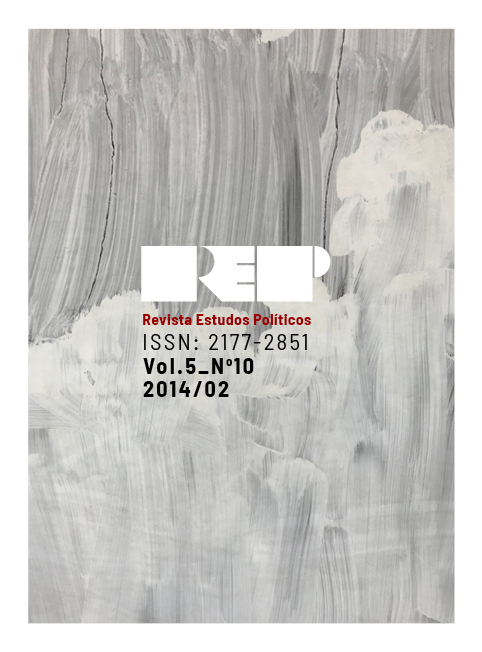Interpreting Conservative Modernization: The Brazilian Sociological Imagination in Difficult Times
DOI:
https://doi.org/10.22409/rep.v5i10.40373Palavras-chave:
Brazilian sociological imagination, dictatorship, conservative modernization.Resumo
One of the main features of the Brazilian sociological imagination has been its widespread public involvement, which is witnessed by the way it has been effectively employed in investigating the historical background of factors regarding the modernization of the country. In the 1960s and 1970s, when there was a military dictatorship, Brazilian sociologists were engaged in the task of interpreting Brazil by highlighting contradictions in the conservative modernization of the country. The purpose of this article is to analyze some of the sociological studies that were carried out in this climate with a view to understanding the main features and ramifications of conservative modernization in Brazil. These set out from different perspectives, with special attention being paid to four works, namely: Capitalismo Dependente e Classes Sociais na América Latina [Dependent Capitalism and Social Classes in Latin America] (Florestan Fernandes, 1973), O Liberalismo e Sindicato no Brasil [Liberalism and Trade Unions in Brazil] (Luiz Werneck Vianna, 1976), Espoliação Urbano [Urban Despoliation] (Lucio Kowarick, 1979), and A Embalagem do Sistema [The Packaging of the System] (Maria Arminda do Nascimento Arruda [1979], 1985). Each of these studies will be linked to other works which address related issues and are drawn on as an example of specific approaches that have governed the sociological imagination in difficult times of repression and democratic openness.Downloads
Downloads
Publicado
Edição
Seção
Licença
Para submeter um manuscrito, os autores devem realizar o cadastro na plataforma, fornecer os dados solicitados e seguir as orientações recomendadas. Para tanto, será necessário apresentar o número da identidade de pesquisador. Para obtê-lo, é necessário realizar o cadastro na plataforma Open Researcher and Contributor ID (ORCID).
Ao submeter um manuscrito, os autores declaram sua propriedade intelectual sobre o texto e se comprometem com todas as práticas legais relativas à autoria. A submissão implica, ainda, na autorização plena, irrevogável e gratuita de sua publicação na REP, a qual se responsabiliza pela menção da autoria.
A REP tem acesso aberto e não cobra pelo acesso aos artigos.
Orientando-se pelo princípio de que tornar público e disponibilizar gratuitamente o conhecimento científico contribui para a democratização mundial do conhecimento, a REP adota a política de acesso livre e imediato ao seu conteúdo.
No mesmo sentido, a REP utiliza a licença CC-BY, Creative Commons, a qual autoriza que terceiros distribuam, remixem, adaptem e criem a partir do trabalho, inclusive para fins comerciais, desde que se reconheça e torne público o crédito da criação original.
Para mais informações, contatar a editora através do e-mail revistaestudospoliticos@gmail.com


